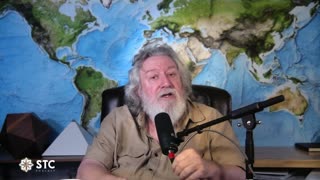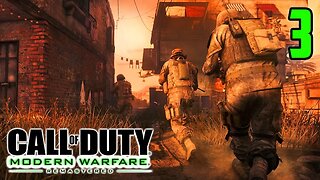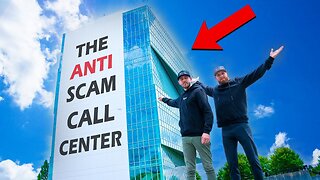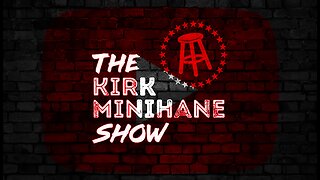REVERSE SPEECH - Apollo 11 A Phonecall From A Magic Ship
So we did a spectral analysis of the July 20, 1969 presser, Neil Armstrong and Buzz Aldrin became the first humans to set foot on the lunar surface, while Michael Collins. the question we asked was "why the Apollo Moon Landing Astronauts Seemed Upset Despite the Historic Achievement?"
The Apollo 11 mission to the moon was one of the most significant events in human history. On July 20, 1969, Neil Armstrong and Buzz Aldrin became the first humans to set foot on the lunar surface, while Michael Collins orbited overhead in the command module. The mission was a triumph of human ingenuity, courage, and perseverance, and it inspired generations of people around the world. However, the post-mission press conference of the three Apollo 11 astronauts was notably somber and even tense. Why were they so upset despite achieving the greatest feat of human exploration?
To understand their behavior, we need to examine the context and the challenges that the astronauts faced before, during, and after the mission. First, let's review the basic facts of the mission and the press conference. After returning to Earth on July 24, 1969, the three astronauts were quarantined in a mobile trailer for three weeks, to prevent any possible contamination from moon dust or microbes that they might have brought back. They underwent medical tests, debriefings, and interviews with NASA and the media, while also receiving congratulations from world leaders and the public. The press conference was held on August 12, 1969, at the Manned Spacecraft Center in Houston, Texas, and was broadcast live on TV and radio.
During the press conference, the astronauts appeared physically healthy but emotionally strained. They spoke in short sentences, avoided eye contact, and gave brief and often vague answers to the reporters' questions. Their body language was tense, with crossed arms and fidgeting hands. They seemed impatient to end the conference and return to their families and privacy. The contrast between their demeanor and the media's excitement and admiration was striking.
One possible explanation for their behavior is the physical and psychological toll of the mission. The Apollo 11 mission was not only the first manned moon landing but also the longest and most complex space mission that NASA had ever attempted. The astronauts spent eight days in space, traveled nearly 240,000 miles, performed multiple experiments, collected samples, and navigated various technical and environmental challenges. They also had to work and communicate effectively as a team, despite being in a cramped and isolated spacecraft for most of the time. All these tasks required intense focus, skill, and stamina.
Moreover, the physical environment of the moon and the spacecraft was harsh and hazardous. The moon had no atmosphere, no water, no life, and no protection from solar radiation or meteoroids. The temperature ranged from -280 F to +240 F, and the surface was covered in dust and rocks that could damage the equipment or the spacesuits. The spacecraft was a complex machine that relied on multiple systems, instruments, and backup plans to function properly. Any failure or malfunction could jeopardize the mission or the astronauts' lives.
The astronauts had to deal with these challenges while also managing their personal needs and emotions. They had to eat, sleep, exercise, and communicate with their families and mission control, all in a highly restricted and stressful environment. They had to control their fears, doubts, and distractions, and stay focused on the mission goals. They had to cope with the isolation and confinement of the spacecraft, as well as the psychological pressure of being the first humans to attempt such a feat.
All these factors contributed to the astronauts' physical and psychological exhaustion after the mission. The three weeks of quarantine and debriefings were necessary but also stressful. The astronauts had limited mobility, privacy, and contact with the outside world. They had to repeat their stories and experiences multiple times, to different audiences, and often under media scrutiny. They had to deal with the aftermath of their historic achievement, including the public attention and expectations that came with it. They became instant celebrities, praised and criticized by people from all walks of life. They were asked to give speeches, attend events, and participate in interviews, while also trying to adjust to their normal lives and families.
This brings us to the second possible explanation for the astronauts' behavior: the pressure and stress of fame and scrutiny. The Apollo 11 mission was not only a scientific and technological triumph but also a symbolic and political one. The United States was engaged in a Cold War with the Soviet Union, and the space race was a crucial part of that competition. The moon landing was seen as a validation of American values, ideals, and capabilities, and a sign of superiority over the Soviet Union.
The media coverage of the mission reflected this narrative, and the astronauts became symbols of American heroism, courage, and excellence. They were hailed as national heroes, and their faces and voices were broadcast around the world. They received fan mail, gifts, and invitations from all over the globe. They were expected to embody and represent the American spirit, and to inspire and motivate future generations.
However, this attention and pressure also had a downside. The astronauts were human beings with their own personalities, emotions, and vulnerabilities. They were not trained or prepared for the intense media scrutiny and public adulation that followed the mission. They had to deal with the expectations and demands of the media, the public, and the government, while also trying to process their own experiences and feelings. They had to balance their personal privacy and integrity with their public role and duty.
The astronauts' behavior during the press conference can be seen as a reaction to this stress and pressure. They were tired, overwhelmed, and maybe even traumatized by the mission and its aftermath. They had to face the media and the public, who expected them to be elated, grateful, and proud of their achievement. However, the reality was more complicated. The astronauts might have felt a mix of emotions, including relief, awe, disbelief, and even regret or disappointment. They might have missed the moon and the experience of being there, or felt a sense of anticlimax after the mission was over.
Moreover, the astronauts might have felt uneasy about the symbolic and political implications of the mission. They might have questioned the cost, the risks, and the motives of the space program and the government. They might have felt a sense of disconnection or alienation from the public, who saw them as heroes but also as symbols of a larger narrative that they might not fully endorse or understand. They might have felt a sense of loss or displacement, as they returned to a world that was different from the one they left behind.
All these factors could have contributed to the astronauts' behavior during the press conference. They might have appeared upset, distant, or reserved because they were trying to cope with their own emotions and thoughts, while also fulfilling their public role and duty. They might have felt that the media and the public were invading their privacy and personal space, and that they needed to protect themselves from further scrutiny or exploitation. They might have also felt that the mission and its significance were being distorted or simplified by the media and the public, and that they needed to correct or clarify certain aspects.
In conclusion, the Apollo 11 mission and its aftermath were a complex and challenging experience for the three astronauts who returned from it. They had to deal with the physical and psychological demands of the mission, as well as the pressure and stress of fame and scrutiny. Their behavior during the post-mission press conference can be seen as a reflection of these challenges, as well as their own personalities and values. The moon landing was a historic achievement that inspired and amazed the world, but it was also a human achievement that involved sacrifice, risk, and complexity. Understanding the human side of the mission, including the emotions and thoughts of the astronauts, can deepen our appreciation and respect for their achievement, and also remind us of the importance of empathy and compassion in our own lives. The Apollo 11 mission was not only a triumph of science and technology but also a testament to the power of human imagination, curiosity, and perseverance. The three astronauts who returned from the mission were not only heroes but also human beings, who faced and overcame extraordinary challenges with courage, determination, and grace. Their legacy will continue to inspire and challenge us, as we strive to explore and understand the mysteries and wonders of our universe.
-
 1:00:59
1:00:59
Squaring The Circle w/ Randall Carlson
23 hours ago#007 The Real Climate Crisis Noone Is Talking About and Mount Tambora Pt 2
26.2K11 -
 13:52
13:52
America Uncovered
23 hours agoEveryone is WRONG About Trump's Guilty Verdict
16.1K34 -
 13:10
13:10
Censored TV
22 hours agoThe Owen Benjamin vs Jim Goad debate was WILD
19.7K20 -
 25:27
25:27
Degenerate Plays
14 hours agoThe Microtransaction Master - Call Of Duty Modern Warfare Remastered : Part 3
19.8K2 -
 21:03
21:03
MYLUNCHBREAK CHANNEL PAGE
17 hours agoOld World Minnesota?
25.8K22 -
 5:49:05
5:49:05
Akademiks
23 hours agoDrake Next Move - Whats next?? Did Lil Baby Listen to Me? Diddy and Family Preparing for Indictment?
82.3K43 -
 1:56:06
1:56:06
TimcastIRL
1 day agoTrump Raises RECORD $52.8 MILLION In One Day, Bonus Uncensored Show w/Laura Loomer | Timcast IRL
101K408 -
 23:19
23:19
Scammer Payback
4 days agoWe Created the First Ever 𝗔𝗡𝗧𝗜-𝗦𝗖𝗔𝗠 Call Center
217K256 -
 1:11:09
1:11:09
LFA TV
1 day agoTRUMP GUILTY…OF LOVING AMERICA! Ft. Hayley Caronia & Vish Burra | LAST CALL 6.1.24 8PM EST
78.8K50 -
 1:02:02
1:02:02
The Kirk Minihane Show
17 hours ago420 Show
55.1K2